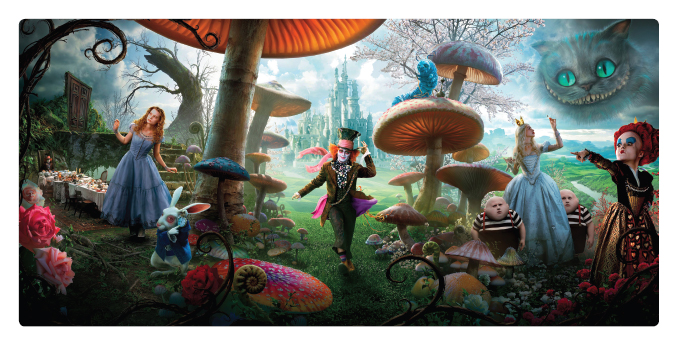Organizing and Supporting Persuasive Speeches
Taking steps to establish credibility with your audience is important. But you can’t rely only on your credibility to achieve your specific purpose. You also need to organize your points in a way that makes sense and give listeners evidence to support your claims.

Shortly after falling down a rabbit hole in the classic story Alice in Wonderland, Alice finds herself talking to the Cheshire Cat as she tries to make sense of the strange world she has found herself in:
“What sort of people live about here?”
“In that direction,” the Cat said, waving its right paw round, “lives a Hatter: and in that direction,” waving the other paw, “lives a March Hare. Visit either you like; they’re both mad.”
“But I don’t want to go among mad people,” Alice remarked.
“Oh, you can’t help that,” said the Cat: “we’re all mad here. I’m mad. You’re mad.”
“How do you know I’m mad?” said Alice.
“You must be,” said the Cat, “or you wouldn’t have come here.”
Alice didn’t think that proved it at all.
—Lewis Carroll, Alice in Wonderland 2
Alice’s encounter with the Cheshire Cat is just one of many conversations she has with unusual characters who pull her into loops of confusing logic. Though these characters try to get her to play by the absurd rules of their world, Alice demands stronger proof about why she should believe them.
If you want to be successful in persuading others, you must avoid twisted logic that leaves your listeners feeling like Alice. Even if you have a lot of credibility with your listeners, if you don’t provide them with a clearly organized presentation and solid evidence, they may not accept what you have to say. The development of logical reasons for your position is what Aristotle referred to as logos.